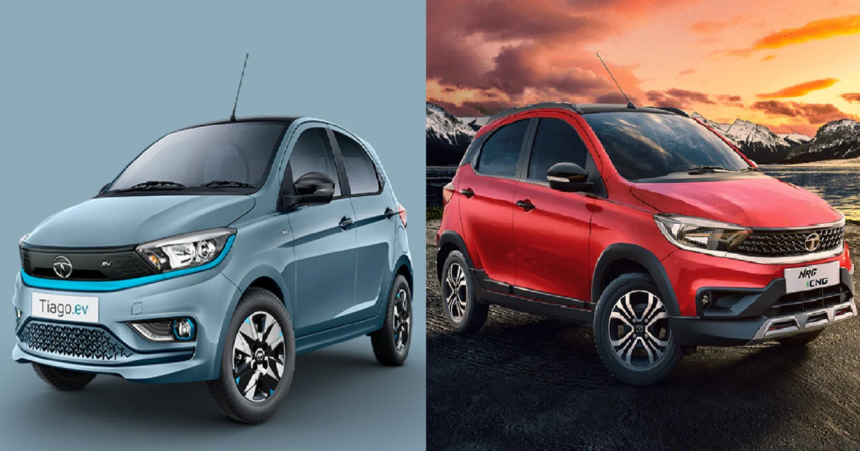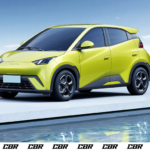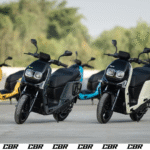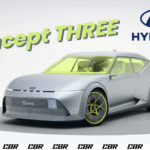In today’s world, it’s important to find alternatives to traditional petrol and diesel cars that are harmless to the environment and cost-effective at the same time. Electric Vehicles (EVs) and Compressed Natural Gas (CNG) are two well-known options. CNG cars initially comprised of retro-fitted kits, though the manufacturers have now replaced that with factory-fitted safe kits. On the other hand, EVs have come a long way, from electric cars like Reva to the latest offerings, including Tata Nexon, which offers a best-in-class range and features.
CNG cars and EVs are growing rapidly in the market. Different countries provide financial benefits for cleaner vehicles, including India. In 2020, overall EV sales in India saw a rise of about 20%, indicating the move to cleaner and environmentally conscious transportation. Although EVs are zero-emissions, they are more cost-effective in the long run.
The low charging infrastructure is the only prominent barrier for EV cars. CNG cars, though they have cheaper fuel and better emissions than the petrol alternative, have higher maintenance costs. Additionally, they have limited space as the boot luggage space gets occupied by the CNG tanks. All things considered, CNG and EVs are two renewable alternative vehicle solutions that have grown in popularity.
Overview of Electric Cars

EVs, that is, electric cars, are performing well worldwide due to their environmental benefits and cutting-edge technology. Despite all the benefits that they offer, they have some limitations too. Here’s what you need to know before you buy an EV car:
Pros and Cons of Electric Vehicles
| Pros of Electric Vehicles | Cons of Electric Vehicles |
| Zero Emissions: No tailpipe emissions, making them eco-friendly. | Range Anxiety: Limited driving range compared to fuel cars. |
| Low Maintenance: The car’s parts are static, leading to lower maintenance costs. | Charging Infrastructure: The ratio of charging stations compared to fuel stations is still quite low. |
| Advanced Technology: Equipped with the latest tech features. | Higher Initial Cost: More expensive upfront than traditional cars. |
| Quiet Operation: Operate very quietly, providing a peaceful ride. | Charging Time: It is a little more time-consuming than refueling a fuel car. |
| Benefits: There is a high possibility that the government will lay incentives and rebates. | Battery Life: Concerns about battery life and disposal. |
Running Cost of Electric Vehicles
Electric vehicles cost much less to charge. One of the electric car benefits is that they are equipped with fewer parts that need replacement, and therefore, they have cheaper maintenance. However, an EV can be expensive upfront. With continued usage and under specific conditions of day-to-day handling, cost efficiencies in savings due to fuel and maintenance can eventually make EVs more economical.
For example, the Nexon EV is priced at ₹13.99 lakhs, but its energy consumption per km charge is less than that of CNG or any other fuel car. Moreover, the government offers discounts and subsidies for EVs, which can make up for the high upfront prices.
Overview of CNG Cars

Though costlier than a petrol-based or diesel vehicle, CNG cars in India are cleaner and have lower running costs. But that comes with its trade-offs, too. Here is an elaborate perspective on the pros and cons of CNG cars.
Pros and Cons of CNG Cars
| Pros of CNG Cars | Cons of CNG Cars |
| Lower Emissions: One of the CNG car benefits is that they are cleaner than petrol and diesel vehicles. | Lower Performance: Less power than petrol and diesel engines. |
| Cheaper Fuel: CNG is less expensive than petrol and diesel. | Space Limitations: CNG tanks reduce boot space. |
| Established Infrastructure: Refueling infrastructure is well-developed in urban areas. | Higher Maintenance: Regular checks on the CNG system are needed. |
| Good Range: Similar range to petrol vehicles. | Limited Availability: Fewer refueling stations in rural areas. |
| Cost Savings: Lower fuel costs provide savings over time. | Fuel Cost Fluctuations: CNG prices can vary based on demand. |
Running Costs of CNG Cars
CNG is cheaper than petrol and diesel, so you can save money on fuel while driving primarily in low gear. It’s worth noting that CNG reduces greenhouse gas emissions, but this also comes at a price because running cars with fuel requires more maintenance for aftermarket conversions.
CNG is the cheapest fuel compared to petrol and diesel, which saves a lot on fuel costs. Still, CNG cars require more maintenance, which might add to their cost. Factory-fitted CNG cars, like the Maruti Suzuki Alto CNG starting at ₹4.95 lakhs, are desirably priced compared to aftermarket retrofittable kits and possess a higher resale value as well. CNG cars have a much lower cost per kilometre but need refueling more often with smaller tanks.
Comparative Analysis: Electric Vehicles vs CNG Cars
While evaluating electric vehicles (EVs) and CNG cars, it is imperative to look at various aspects, including features that provide cost-efficiency and environmental effects. The following table offers a visual comparison of both options side by side to give you a better understanding of what makes them different and unique from one another.
| Factors | Electric Vehicles | CNG Cars |
| Features | Advanced tech and quiet operation. (Example: Tata Nexon EV) | Lower emissions and cheaper fuel. (Example: Maruti Suzuki Wagon R CNG) |
| Options | Increasing model variety | A wide range of models |
| Affordability | Higher initial cost, lower running cost. (Example: Tata Nexon EV starts at ₹13.99 lakhs) | Lower initial cost, fluctuating fuel cost. (Example: Maruti Suzuki Alto CNG starts at ₹4.95 lakhs) |
| Usage | Best for urban and suburban areas. | Suitable for city and short trips. |
| Running Cost | Lower running costs (electricity and maintenance). | Moderate running cost (cheaper fuel, higher maintenance). |
| Resale Value | Depreciation varies depending on the model. | Generally good resale value. |
| Environmental Impact | Zero emissions, eco-friendly. (Example: No tailpipe emissions) | Lower emissions than petrol and diesel. (Example: 20% less CO2 emissions than petrol cars) |
| Space | The EV cars are more spacious than CNG cars. (Example: Tata Nexon EV) | These vehicles come with a CNG-fitted kit, which blocks the boot space. (Example: Maruti Suzuki Ertiga CNG) |
What is the Environmental Impact: EVs vs CNG
EVs are cleaner than CNG gas cars since they don’t have tailpipe emissions. This reduces air pollution and greenhouse gases. Electrical vehicles, when used with renewable-source electricity, decrease GHG emissions significantly. CNG, however, produces fewer pollutants than petrol or diesel but is still a harmful hydrocarbon gas.
Practicality and Convenience: EVs vs CNG
Cities have better driving areas for EVs than rural areas, as more urban areas have better range and recharging opportunities. CNG cars provide fast refueling and are suitable for both urban and rural areas. However, they are not ideal for long trips due to the lack of refueling stations in rural locations.
Also Read: Caught on Camera: Bajaj Pulsar N125 Reveals Sporty New Look
Key Considerations for Choosing Between EV and CNG Cars

When deciding between an electric vehicle (EV) and a CNG car, keep these important factors in mind:
1. Environmental Impact
Since EVs do not emit any tailpipe pollutants like nitrogen gas, and carbon dioxide. They help reduce the levels of these gases, which have a more significant contribution to air pollution. CNG cars, like the Maruti Suzuki Wagon R CNG, emit 20% less CO2 than petrol cars but still produce some emissions.
2. Driving Range and Refueling/Charging
While EVs such as the Tata Nexon EV (with a 312 km range) are best suited for short to medium commutes, they take longer to charge, typically around 8-12 hours. CNG cars (such as Hyundai Santro) require less refueling and can be used for long distances.
3. Initial and Running Costs
EVs have higher upfront costs (the Tata Nexon EV starts from ₹13.99 lakhs), but they also come with lower running and maintenance costs due to electricity being cheaper at ₹1.2 per km. CNG cars, on the other hand (like the Maruti Suzuki Alto CNG starting at ₹4.95 lakhs), are more affordable to buy and run (₹1.5 per km) but need frequent maintenance.
4. Performance and Convenience
Electric vehicles (EVs) such as the Tata Nexon EV offer an amazing ride with several advanced features and quicker acceleration. You can reach from 0 to 100 km/h in just 9.9 seconds. CNG cars are good for city drives, but they do not have great horsepower. CNG cars also have less boot space because CNG tanks are fitted there.
5. Government Incentives
EVs are often highly subsidized—India’s FAME scheme offers incentives of up to ₹1.5 lakhs on EV cars. CNG cars may receive some incentives, though fewer are available and vary by location.
FAQs
1. How safe are electric cars?
Electric cars are very safe and meet strict safety standards. They often come with advanced safety features.
2. What are the government incentives for EVs and CNG cars?
Governments provide subsidies, tax benefits, and other incentives to sell EVs/CNG cars. The government has reduced GST from 12% to 5% on EV cars. Different states have different subsidy prices. For example, Uttar Pradesh offers up to Rs. 1 lakh subsidy, whereas Gujrat offers up to Rs. 1.5 lakh. Maharashtra, on the other hand, offers a Rs. 2.75 lakh benefit for EV buyers.
3. Is CNG available everywhere in India?
CNG is widely available in urban areas but may be limited in rural regions.
4. How long do EV batteries last?
They can generally last between 10 and 15 years with varying use and care. If charged twice a week, they can also last up to 20 years.








